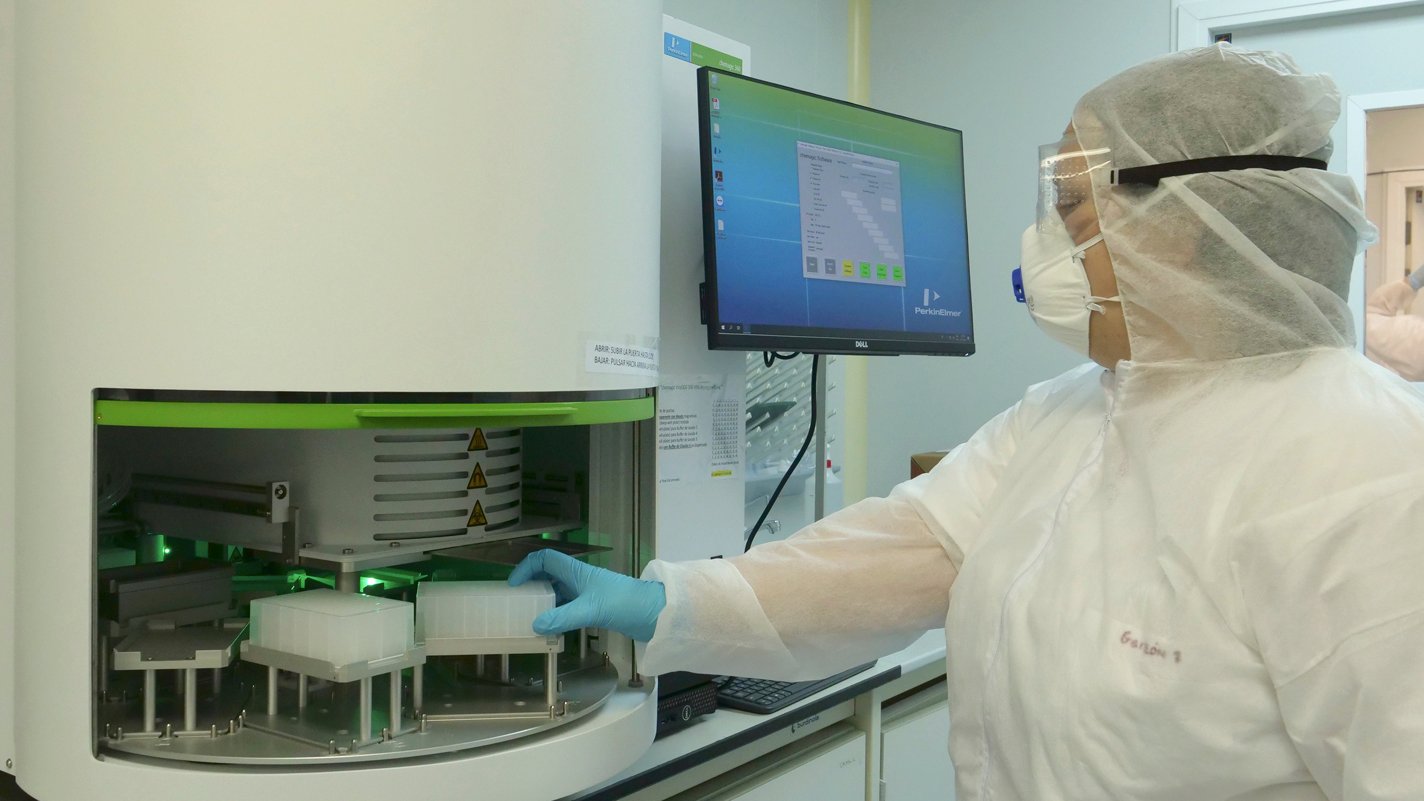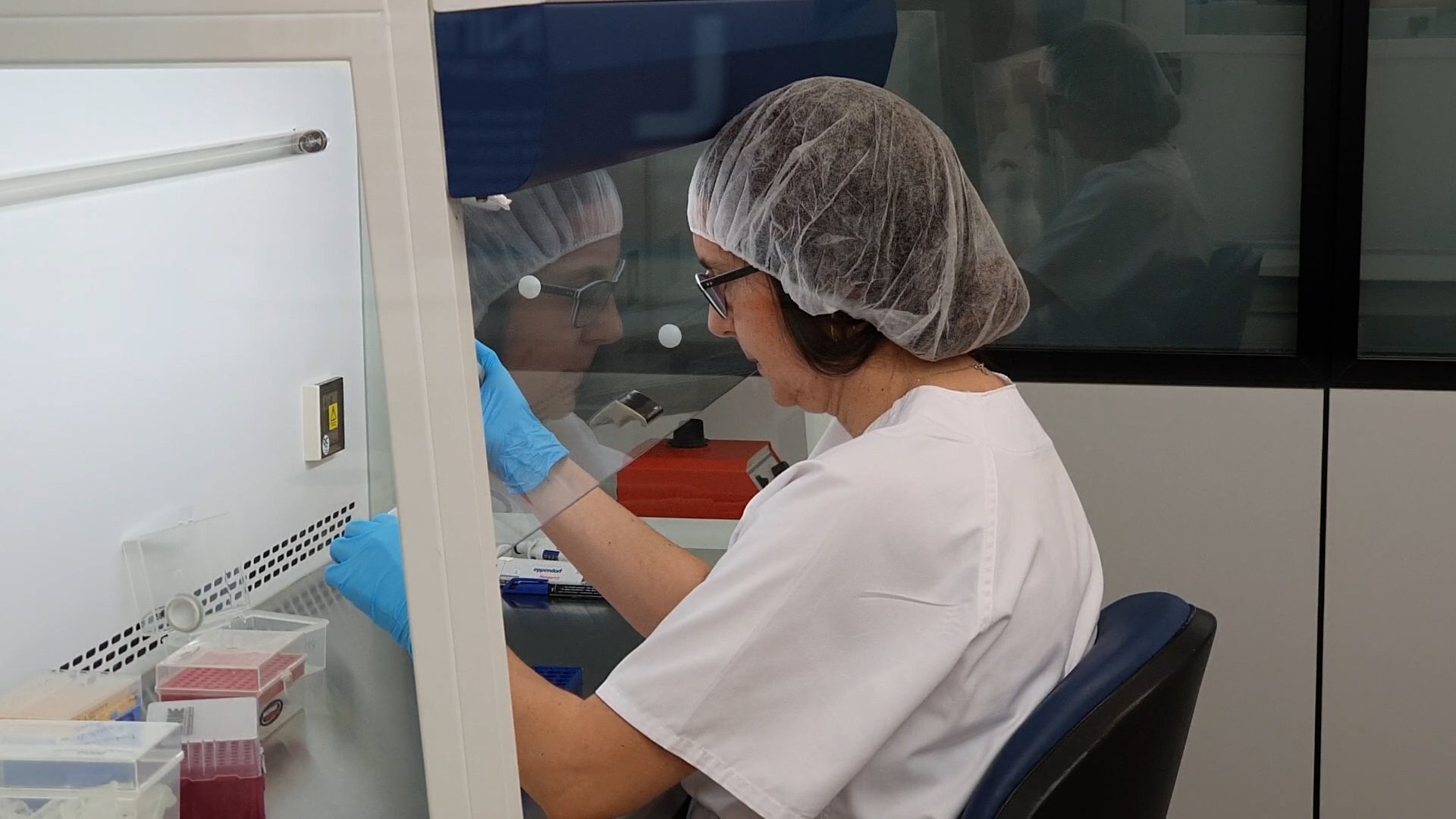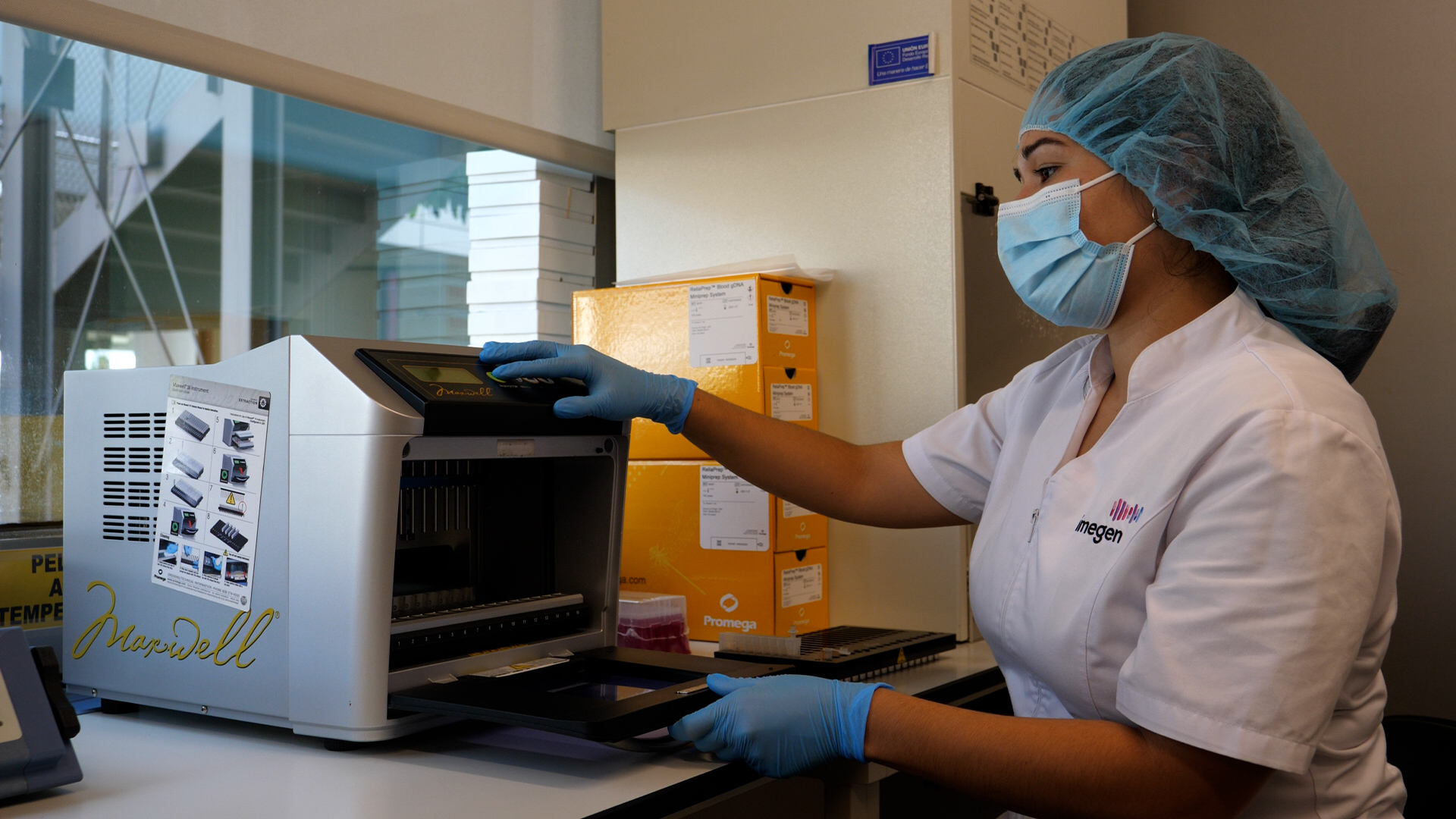EpiDisease, IMEGEN and Seqplexing offer same-day test results
Polymerase chain reaction (PCR) is a routine test for diagnostics and microRNA research that EpiDisease, IMEGEN and Seqplexing have included in their service offerings for years. However, the COVID-19 pandemic has given this technique key value in that it is the most effective method for detecting the presence of Sars-CoV-2 virus in humans.
"We have been offering this diagnostic service since May," recalls Ángela Pérez, CEO of IMEGEN, who adds: "Not only that, but we also manufacture the diagnostic kits to carry them out". In fact, the Valencian company, which has been based at the University of Valencia Science Park for more than a decade, has been selected by the Ministry of Health, through the National Institute of Health Management (INGESA), to supply PCR kits for most of the autonomous communities. "Despite the offer, we are still waiting for the Regional Ministry of Health to count on the services of Science Park companies," he regrets.
Every day at their facilities in Paterna they carry out the analysis of between 100 and 200 samples, to which they have to add those they carry out at their laboratory in Malaga and soon they will also carry out at the airport of this Andalusian town, where they have just been granted the concession.
"At the moment, we work with companies, whose samples are collected by a nurse in their work centers, and with individuals who come here. Of every 10 PCRs, 7 are performed with nasopharyngeal samples. "Saliva samples are taken from children and people who are not easily mobile," explains Greta Carmona, head of COVID-19 test development at IMEGEN.
A new service charter
EpiDisease has been recognized by the Paterna Ciudad de Empresas Awards as the company that has most significantly transformed and adapted to COVID-19. "The arrival of the pandemic brought an abrupt halt to our research around the development of an in vitro diagnostic kit based on epigenetic markers determined by PCR. Taking advantage of the knowledge and experience we have in this molecular diagnostic technique, we decided to join a consortium of companies - COVID19 Alliance - for the diagnosis of the new coronavirus, with our laboratory being the nucleus in the Valencian Community," says its scientific director, José Luis García.
Together with the University of Valencia, they have equipped a laboratory at the Sciencie Park with an automated RNA extraction robot and a PCR machine, which allows 1,200 samples to be analyzed daily. "The facility is qualified by the Instituto de Salud Carlos III, under the Ministry of Science and Innovation, to provide support to the Generalitat in the analysis of tests from Valencian hospitals. In addition, we are a genetic and microbiological diagnostic center authorized by the Regional Ministry of Health. All in all, the volume of samples we analyze comes from companies and individuals and averages around 25 a day," explains Eva García, technical manager at EpiDisease.

An Epidisease lab technician manipulates the automated RNA extraction robot. Source: FPCUV
In this company, the bulk of the samples are saliva samples. Trini Alberola, laboratory manager at EpiDisease, stresses that the main advantage of this type of sample is that it does not require the intervention of health personnel, since the person taking the test only has to salivate, deposit it in a sterile bottle - which can be purchased at any pharmacy - and send the sample to the laboratory. However, to ensure greater sensitivity, it should be taken first thing in the morning, on an empty stomach, without drinking water, without smoking and without having used mouthwash.
Strain identification
This is the type of sample that Seqplexing is also working with at the moment. The biotech company was accredited in November as a microbiology laboratory and since then has had three professionals on staff dedicated to this PCR service. "The number of daily samples varies according to the evolution of the wave we are in. While in January we were analyzing between 30 and 40 samples a day, we are now working on about 20 a day," says Carmen Ivorra, scientific director. "We are in the process of developing a kit that will also identify whether the strain is the British or South African variant," she adds.

The scientific director of Seqplexing, Carmen Ivorra, works with samples of COVID-19. Source: FPCUV
The PCR diagnostic test performed by these three companies can detect on the same day the presence of a fragment of the Sars-Cov-2 genetic material in the nasopharyngeal or buccal sample. "If we take the sample before noon, the results are available in the afternoon," say the three biotech companies.


